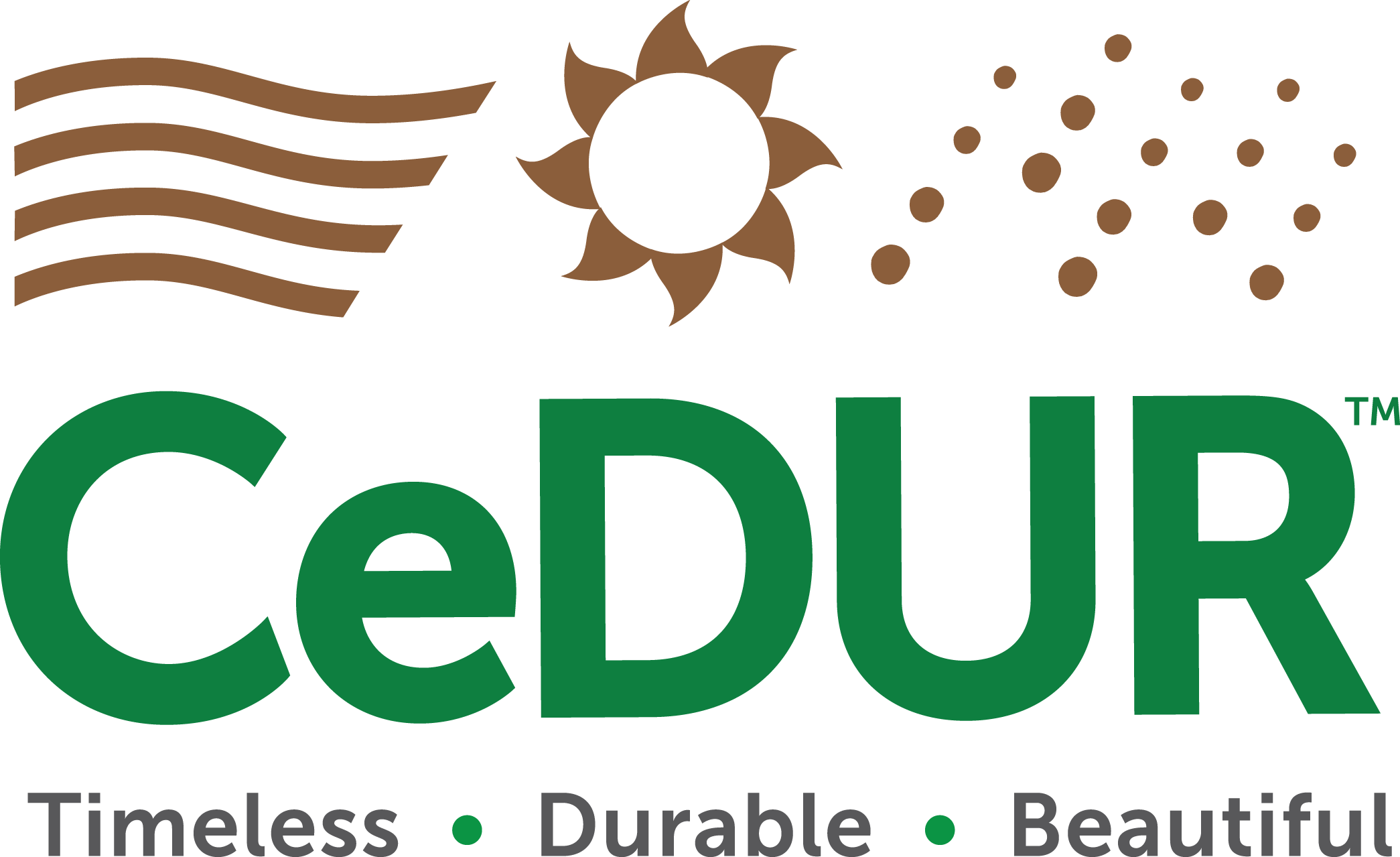Best Roofing Materials for North Carolina: Built for Beauty and Storm Resistance
CeDUR Walden roof installed by Three Tree Roofing, capturing the authentic look of cedar shakes on a home.
North Carolina's diverse geography — from the hurricane-prone Atlantic coast to the humid Piedmont and western Appalachian mountain regions — means that homeowners face a range of environmental challenges when it comes to roofing. Choosing the right roof type isn’t just about curb appeal; it's about selecting materials that can withstand coastal winds, high humidity, seasonal storms, and even snow in higher elevations.
In this guide, we'll explore the most common roof types in North Carolina, assess regional weather conditions, and explain why synthetic roofing materials—like those manufactured by CeDUR—are among the smartest long-term investments for North Carolina homes.
Common Roof Types in North Carolina
North Carolina homeowners frequently choose from a mix of traditional and modern roofing materials:
Asphalt Shingles: Widely used due to affordability, but vulnerable to wind uplift, UV degradation, granule loss, and algae growth in humid areas.
Metal Roofing: Popular in rural and mountain areas for its durability, but it can be noisy during storms and prone to denting.
Wood Shake: Offers a rustic, charming look but performs poorly in humidity, posing mold and fire risks.
Clay or Concrete Tile: Suitable for warmer climates, but too heavy for many structures and not ideal for high-wind zones.
Synthetic Roofing: Engineered to deliver the beauty of wood or slate with superior resistance to moisture, wind, fire, and impact.
While each of these has specific pros and cons, few offer across-the-board advantages in all of North Carolina's climates.
Regional Weather Challenges in North Carolina
North Carolina's climate zones bring varied demands on roofing systems:
Eastern NC (Coastal Zone): High humidity, salt exposure, tropical storms, and hurricanes
Central NC (Piedmont): Hot summers, high rainfall, and severe thunderstorms
Western NC (Mountains): Snow, ice, and rapidly changing temperatures
No matter the region, roofs must provide reliable protection against water intrusion, wind damage, and UV degradation.
Why Synthetic Roofing Excels Across North Carolina
Synthetic roofing materials, like those crafted by CeDUR, provide robust, all-weather protection tailored for every part of the state. Here’s how they meet the specific needs of North Carolina roofs:
Coastal North Carolina: Hurricanes and Humidity
Homes in Wilmington, Morehead City, and the Outer Banks face hurricane-force winds and salt-laden air. CeDUR roofs are:
Certified wind tested up to 115 mph
Immune to salt corrosion
Mold and moisture resistant
Class A fire rated for insurance compliance
Piedmont Region: Heat and Storms
Cities like Raleigh, Durham, and Charlotte experience intense summer heat and regular thunderstorms. CeDUR shakes:
Resist hail impact with a Class 4 rating
Shed water effectively and resist algae and moss growth
Provide thermal insulation benefits with an R-Value over 2.0
Western NC Mountains: Cold, Ice, and Snow
In areas like Asheville and Boone, roofs must handle ice dams, snow loads, and freeze-thaw cycles. CeDUR shakes:
Maintain flexibility in cold climates
Won’t absorb water or crack from freeze-thaw
Provide authentic wood aesthetic without the rot
Why CeDUR Is a Wise Investment for North Carolina Homeowners
For North Carolina residents looking for a roof that performs well in every season and region, CeDUR delivers:
Curb Appeal: Hand-split cedar appearance complements both modern and traditional homes
Sustainable: No need for chemical treatments or preservatives to achieve Class A fire rating
Low Maintenance: Little to no maintenance required
Longevity: 50-year limited material warranty for lasting value
Lightweight: Safe for older and historic homes with limited structural capacity
Fire and Wind Resistant: Ideal for code compliance and insurance considerations in fire- and wind-risk areas
Living by the ocean or nestled in the Blue Ridge Mountains, CeDUR protects your home while enhancing its curb appeal.
Your Roof Should Match the State You Live In
From hurricanes to hail, humidity to heavy snow, North Carolina homes need roofs that can do it all. Synthetic roofing materials from CeDUR provide unmatched protection, authentic charm, and long-term value—no matter where you live in the Tar Heel State.
Curious how CeDUR compares? Contact us to request a sample or learn more about roofing solutions tailored to North Carolina living.

